
But the Barrister, weary of proving in vain
That the Beaver’s lace-making was wrong,
Fell asleep, and in dreams saw the creature quite plain
That his fancy had dwelt on so long.
And on the sixth Fit, the Barrister slept.
Played here by the notorious Continental steamer, Martin Heidegger, (right Zeit up and left Sein down) the Barrister has been overwhelmed by the fumes of cheap plonk and the Beaver’s well-turned ankles and has sunk into a torpid sort of slumber upon the thickly inked lawn.
Our dear reader, who eschews cheap drink and chorus girls in favor of the headier vintages of Carrollian verse, will note that the Barrister has been furnished here with dreams in the plural. He or she will nod knowingly, perhaps even smugly, for every Carrollian worth their mustard and cress is cognizant of the Master’s mysterious penchant for dreams.
In fact, Lewis Carroll never met a novel or poem in which he didn’t feel obliged to stuff in the odd bit of dreamwork to move the plot along, and by providing the luckless Barrister with an multiplicity of dreams our poet may be betraying his own crypto-Hindu sympathies! Classical Hindu epistemology, bursting at the seams as it does with a nightmarish superfluity of dreams and illusions, all of ‘em nested one within the other, would have been pure catnip for the likes of Carroll.
This artist is aware that there are those amongst us who will object to the above theory, they might mutter darkly about a certain virulent strain of Neo-Platonism run amuck on the playing fields of Eton from which Carroll may have been infected, rather than some curry-inflected metaphysics hailing from god knows where. Well, they can toss their Neo-Platonic influences into the dust bin as far as we’re concerned, for it’s Hinduism which has the real pukka goods on Runaway Idealism and this Floating Metadream We Call Life. Like the Red King in Through the Looking Glass, we are all of us, readers, artist, poet and Barrister, dreaming of one another and if we ever do wake up to find out what’s Real, well, what is Reality anyway, huh?
After mentally digesting all of this, the less tolerant DR will start things off by giving this over-heated illustrator a gentle boxing about the ears and a light touching up with a lead featherduster. They will then will reach for their Bradshaw of the Future (our preferred etymological opium den) and look pensive whilst they peruse the pedigree of the word "dream", a word which in Old English meant "joy" or even curiouser and curiouser, "music".
Tossing aside their Bradshaw with an insouciant pshaw, the less tolerant DR will then gird their loins and push their way past the more tolerant DR (still asleep and reeking of cheap plonk and ankles, no doubt) and towards the well-inked anthropomorphic forks afflicted with the Amorous Gigantism of Inanimate Objects, the Beaver’s size 9 chukka boots, the winged goblets and obligatory bar of soap, the Man-Ray-smiles and the cloth-headed judge-and-jury — all of ‘em merely a smokescreen for the 9-piece band ensconced in their band-shell in the background of this etymological-cum-epistemological mis-en-scene!
And what is this joyful music that our dream orchestra* is producing for the benefit of our dream Barrister? Is it the melodious warblings of some Hindustani songstress afflicted with a keening adenoidal distress? Is it the rock ‘n roll oompah-oompah of some hipster, Platonic cave-dwellers? To find out, dear readers, stay tuned for next week’s episode of The Hunting of the Snark!
____________________
*Our readers might even be more bewildered than usual to learn that this illustrator is personally afflicted with the rather enjoyable syndrome of musical dreaming; that for many years his dreams have been provided with a sort of involuntary cinematic soundtrack, not of his choosing although usually of a classical nature with full symphonic scoring and occasional instrumental soloists. On occasion a bit of pop rubbish gets by, the theme to Star Wars or suchlike, but this artist is the sort of high-minded fellow who thinks nothing of walking out of a bad film or dream.

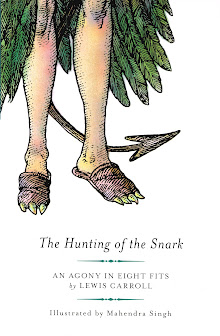

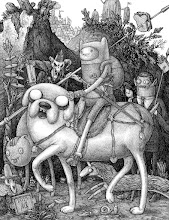
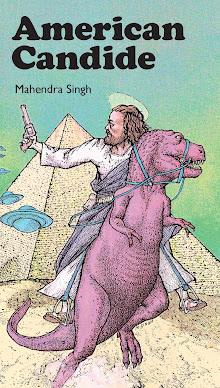

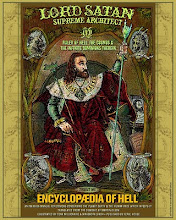
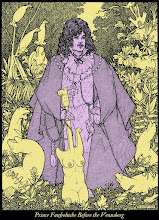
Given the tenor of the piece, I suspect, in short, that the High-didgeridoo will play an important part (is there one mooted in the foreground of the Amorous Gigantism panel?)
ReplyDeleteTenor, or countertenor … 'tis a trial of sorts, by jury or judge
ReplyDeleteA quite entertaining blog
ReplyDelete